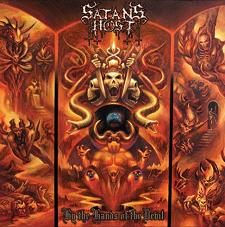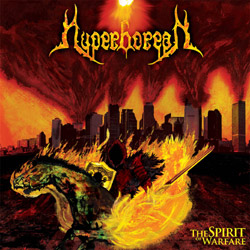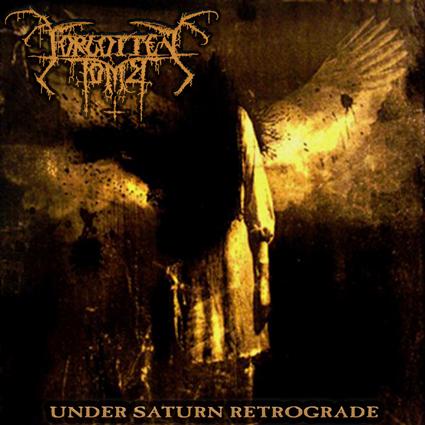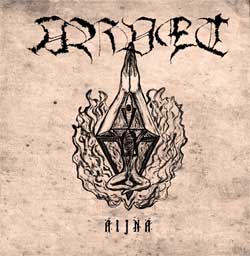Often when bands deliberately try to be avant-garde, weird, posing in oh so crazy masks in promo pictures, I have zero interest to look into the band. This was also the case with Vampillia’s recent EP, Rule the World / Deathtiny Land, but fortunately I eventually checked it out in spite of all reservations, because it turned out to be quite a beautiful journey through various (and mixed) emotions.
Most importantly, it’s the orchestral parts of the EP that truly stand out, being really intricate and well executed pieces. An easy example could be the classical ”One Day I Thought the World...” and ”Made My Mind to Dominate...” followed by the climatic post-rock ”Day of Departure...” that also incorporates the first signs of metal. But the metal is always in minor role, the soundscape being dominated by orchestral string instruments, clean female singing and some male grunting. The songs are really brief, some lasting mere fifteen seconds, ”Switch and Bomb / Melody Tinborn” running for only four seconds. This all reminds me of Diabolical Masquerade’s Death’s Design combined with Fantômas. Then there’s the rhythmic ”A Deceptive Attack...” that jams like a track from Omar Rodriguez-Lopez’s some solo album.
A lot of ideas have been packed into this short 25-minute whole, making Rule the World / Deathtiny Land seem first really incoherent, passing from an ear to another, hence multiple listens are required for proper comprehension. The EP might not be entirely mindblowing but definitely a worthwile effort crafted with care and vision, also the rather low fidelity sound fits the flowing atmosphere of the record: the last thing this would need is a mood-killing sterile production. No explanations needed, this will most likely appeal to fans of a heavy avant-garde touch in their metal.
Most importantly, it’s the orchestral parts of the EP that truly stand out, being really intricate and well executed pieces. An easy example could be the classical ”One Day I Thought the World...” and ”Made My Mind to Dominate...” followed by the climatic post-rock ”Day of Departure...” that also incorporates the first signs of metal. But the metal is always in minor role, the soundscape being dominated by orchestral string instruments, clean female singing and some male grunting. The songs are really brief, some lasting mere fifteen seconds, ”Switch and Bomb / Melody Tinborn” running for only four seconds. This all reminds me of Diabolical Masquerade’s Death’s Design combined with Fantômas. Then there’s the rhythmic ”A Deceptive Attack...” that jams like a track from Omar Rodriguez-Lopez’s some solo album.
A lot of ideas have been packed into this short 25-minute whole, making Rule the World / Deathtiny Land seem first really incoherent, passing from an ear to another, hence multiple listens are required for proper comprehension. The EP might not be entirely mindblowing but definitely a worthwile effort crafted with care and vision, also the rather low fidelity sound fits the flowing atmosphere of the record: the last thing this would need is a mood-killing sterile production. No explanations needed, this will most likely appeal to fans of a heavy avant-garde touch in their metal.
3.5 / 5







